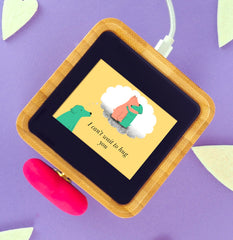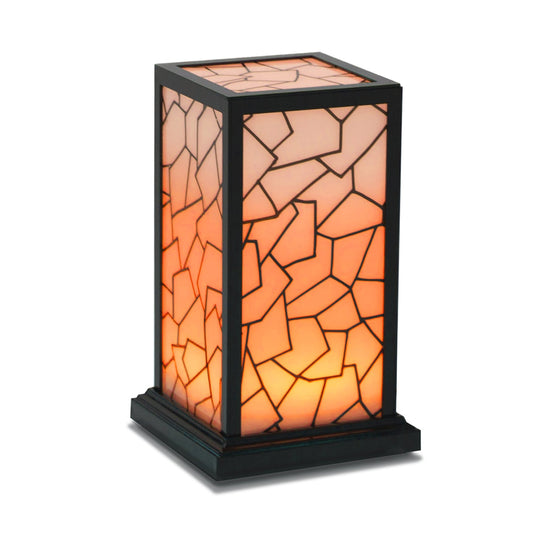Empty Nest Syndrome is a term used to describe the emotional reactions of parents when their children move out and live on their own. It can occur as early as when your teen has moved into their own apartment or even decades later when they are married and you are left with just your spouse in the house.
No matter how fast your kids leave home, it can come with some serious adjustments for you and your spouse. You have watched them grow up and you’ve spent more than 18 years with them so it’s only naturalthat you’re going to feel empty when they finally leave to become independent adults.
Empty nest syndrome can be a challenging time for parents. Their children are becoming more independent and exploring the world outside the home. This can lead to feelings of loss, emptiness, or stress in parents. However, this does not mean that you love your children any less. You’re just going through a normal transition as your kids grow up and leave home.
Researchers have studied why this happens and what you can do about it. Here’s a look at why it happens, what the signs and symptoms are, and how you can cope with it.
What Causes Empty Nest Syndrome?
If you experience a great deal of sadness, anxiety, or irritation when your children leave home for college or a new job, you may be experiencing Empty Nest Syndrome. This is far from uncommon, but it can be very frustrating and deeply troubling for parents in the midst of transition.

It’s understandable why you would feel this way, though. You have spent so much time with your children, watched them grow up, and have gotten used to always having them around. But now you have to watch them leave and move to a different city or country. You have become accustomed to their presence and when they are no longer there, you feel their absence very strongly because they were such an integral part of your day.
It’s important to understand that the feelings that come with this transition are completely normal and expected, but the key is learning how to manage these emotions so they don’t get in the way of your daily life.
Empty Nest Syndrome often occurs when children leave their home, either to go to college, get a job, or find a partner and settle down. When children are living with their parents, they take up a lot of their time and energy. You have to cook for them, take them to school, play games with them, and do other things to bond with them.
You also have to be prepared to answer questions about the world and help them solve their everyday problems. But when children leave home, parents suddenly have a lot more free time and energy.
Unfortunately, you and many other might not be prepared for this transition and won’t be sure what to do with all this time you now have on your hand. This is what leads to a feeling of emptiness and loneliness that is sometimes referred to as Empty Nest Syndrome.
What Does Empty Nest Syndrome Feel Like?
The symptoms of Empty Nest Syndrome can vary from person to person depending on their situation and what’s happening in their lives. You might express the signs differently than your spouse so don’t worry if you feel like they’re not sad enough after your children leave. There are a few common emotional reactions that parents may experience when their children leave, though.
Here are a few of those common emotional reactions:
1. Sadness
– This is a normal reaction to your children leaving home. Not only is it common and normal, but it’s also healthy. It’s a sign that you have formed a strong emotional bond with your children while they were living with you. Again, not everyone will experience the same symptoms, so if you notice your spouse doesn’t express sadness, it doesn’t mean that they’re not close to your children.
2. Feeling lonely
can also cause you to feel sad. You used to spend all your time with your children and now they’re gone and you have nothing left to do. The hole that’s left in their absence is bound to make you sad.
3. Anxiety
– Many parents experience feelings of anxiety when their children leave home. This can make them feel nervous about the future and fearful that something bad is going to happen to their child. It’s common to be anxious about the fate of your children, but you have to remind yourself that they’re adults now and you have to put some trust in them.
4. Your children are now alone and that would be worrying
for any parent, but don’t forget that you raised them and they’re equipped with all the necessary life skills they need to survive on their own. They also have access to modern technology!
5. Frustration
– Many parents also feel frustrated when their children move out. You may feel frustrated because you’re not sure what to do with all the extra time or because your child is struggling to find a job or make new friends. You can’t be there to help them and that makes you feel powerless.
6. You can change that with the help of a Lovebox.
A Lovebox is a device that connects with an app of the same name. It gives you constant reminders to express affection and love for the people you care about. With a Lovebox, your child will never feel unloved and they’ll always know that you’re thinking of them everyday.
Signs of Empty Nest Syndrome
If you’re worried that you may be experiencing Empty Nest Syndrome, then you may want to look for these signs in your own behavior. Oftentimes, you won’t notice them on your own so you can ask your spouse to keep an eye out for them.
Here are some things you want to notice in your behavior after your child leaves:
1. You no longer feel passionate about anything
– Have you always been interested in charitable causes and political activism? Or perhaps you enjoyed painting and reading books with your children? If you’ve been feeling a little less interested in your favorite hobbies lately, then it could be a sign that you’re struggling with Empty Nest Syndrome.
2. Just notice how you spend your time on any given day and compare it to how you used to spend your days before your children left.
Do you still do the activities you used to do? If not, then you probably have Empty Nest Syndrome.
3. You feel frustrated and you get angry quickly
– Your frustration will show up in different ways. You might feel more judgmental towards yourself, your spouse, or other people around you. You’ll find yourself getting frustrated over the smallest things. This is a way to displace the overwhelming emotions that you feel after your children leave. You feel sad and lonely, but because you don’t want to talk about your emotions, you turn to anger.
4. Don’t take your anger out on your spouse or anyone around you.
Keep in mind that other people in your family are dealing with your children’s absence as well.
5. You forget things easily
– Have you been forgetting to pay bills on time? Are you having trouble remembering where you put your keys or your phone? These are all signs that you’re experiencing a lack of stimulation and because you don’t do as many activities as you used to with your children, you feel bored. You don’t feel like putting any effort into anything and that’s okay.
How to Deal with Empty Nest Syndrome
If you recognize the symptoms of Empty Nest Syndrome in yourself, then it’s important to take action before the feelings fester and start to negatively affect your life. Here are a few ways you can deal with Empty Nest Syndrome:
Find a new hobby

– Helping other people is a great way to free yourself from the isolation that often comes with Empty Nest Syndrome. It’s common to feel lonely after your children move out of the house and the best way to combat loneliness is by spending more time with people! There are plenty of ways to volunteer, whether it’s online or in person. Spend more time with the people in your community and see if there’s anything you can help them out with.
Spend time with your spouse
– It’s easy to forget about your partner during this time of transition. Make sure to carve out time for just the two of you. Now that you don’t have any kids to take care of, you can spend more quality time with your spouse. Plan a romantic date night or go on a vacation with them! Find more activities that you and your spouse can do together so you can get closer to each other. You can do activities such as going hiking, taking your spouse to a concert, taking them out to a fancy restaurant, and going to a theme park with them.
Talk about your feelings
– Ignoring or repressing your feelings won’t help. It’ll only make them stronger and harder to deal with. Instead, talk about your feelings as they come up and let your spouse know how you’re feeling. You can talk to your children as well about how you feel. Call them every now and then and tell them that you miss them.
Be supportive
– Remember that if you feel lonely when your child leaves, then they’ll feel lonely, too. They’re alone in a new place and there’s a lot of uncertainty surrounding their situation. They’ll be facing a lot of challenges so you have to make sure that you’re there to listen and support them as they make this transition. By supporting them, you’ll be alleviating your loneliness as well as theirs.
Get your children a Lovebox
– As mentioned above, a Lovebox is a device that will remind you to express love and affection to people you care about. A Lovebox will send your child messages everyday to remind them that they are loved and in your thoughts. It’s a unique gift that will keep both of you from feeling lonely.
Conclusion
If you’ve ever been through the experience> of having your children move out, then you know how incredibly bittersweet it can be. On the one hand, you’re thrilled to see them become independent and start to build a new life for themselves. On the other, you’re going to miss them like crazy.
Empty Nest Syndrome is happens when your children move out to go to college or find a job. In their absence, you feel lonely and sad and sometimes even frustrated.
But you don’t have to think of it as something negative. It’s a sign that you’re close to your child and you miss them. Yes, it’s hard now that they’re not around, but you can do many things to keep yourself busy and happy. You can talk to your child whenever you want on the phone and you can gift them a Lovebox so you can always remind them that you love them and you’re always thinking of them.
Other than that, just spend quality time with your partner and take up new hobbies so you can keep yourself from feeling lonely and sad.














